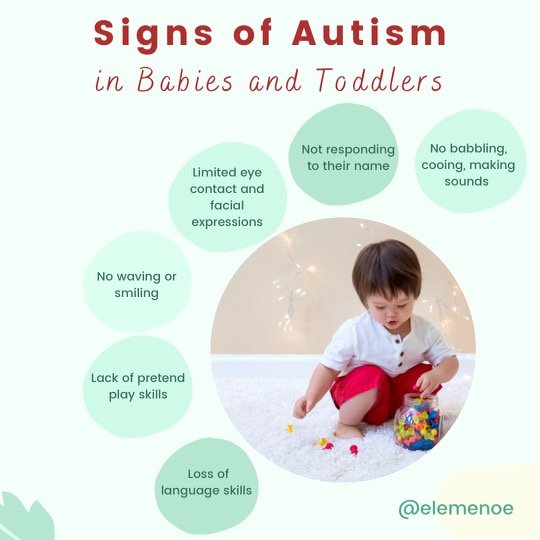5 Signs of Autism in Babies & Toddlers
Autism Spectrum Disorder, or autism, is a developmental disability with no known cause and no cure. What we do know about autism is that the earlier a child is diagnosed and able to access therapy, the better the outcomes are for that individual. When one or more of your child’s skills are lagging behind, don’t wait and see. Have your child assessed by a professional. The early years of life are so important for your child to set a strong foundation for their future!
1. Lack or Loss of Language Skills
Some children with autism do not begin talking at all or only have a few words. Others may start talking around 12 months of age but then begin to “lose” words, and parents stop hearing words they heard before. If your child is behind on their communication milestones, it does not necessarily mean they have autism, but it is important to have them assessed by a developmental paediatrician or speech-language pathologist.
2. Atypical Play Skills
One of the features of autism is related to restrictive or repetitive interests. If you notice that your child engages in primarily ritualistic play, such as lining up toys, or is exceptionally focused on parts of the toy, like the wheels, it could be an early indicator of autism. Another sign to watch for is a lack of pretend play by 2.5 years of age. Examples of pretend play include giving a baby doll a bottle, feeding pretend food to a stuffed animal, or making a toy airplane fly. Children with autism may not engage in pretend play the way their typical peers do and instead are focused on repetitive or ritualistic play patterns.
3. Few or No Gestures
Many children with autism do not engage in social gestures (such as waving, smiling) because autism affects their social and communication development. If by 12 months of age your child is not waving, it could be an indicator of autism and may be beneficial to seek an assessment by a speech-language pathologist.
4. Limited Eye Contact or Facial Expressions
Similar to the above, many children with autism engage in atypical or a lack of eye contact and may have limited facial expressions. You may begin to notice this as young as 12 months. You might notice your child doesn’t reference you for approval or is not looking at you when you say their name; these could be early signs of autism.
5. Does not share their interests with others
One of the defining features of autism is an impairment in social communication. You may notice that your child does not respond to their name the way their peers do; this can be noticed in children as early as 9 months. Another indicator can be if your child does not show you items of interest or doesn’t point or respond to your pointing by 18 months of age. Typically developing children will often bring items of interest to a loved one or will follow a parent’s point to an item across the room. If your child is not meeting these expectations, it may be beneficial to seek a professional opinion.
All children develop at their own pace. If your child is exhibiting one or more of the items on this list, it is important to seek out professional guidance from a developmental specialist. For more information about early signs of autism check out this video by the Kennedy Kreiger Institute.
At Elemenoe, we offer a free developmental screening assessment on the first Tuesday of every month to answer parent questions and concerns about their child’s development! To register, use this link.

